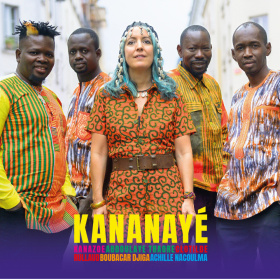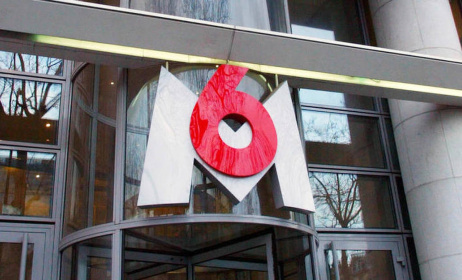Kenya: KECOBO poster sparks debate
A Kenya Copyright Board (KECOBO) enforcement poster has elicited sharp reactions from Kenyan DJs. The bone of contention is an inscription at the bottom that reads: “Mixing of music by various artists is a criminal offence”.
 Anto Neosoul says DJs are a critical pat of the music marketing mechanism in Kenya.
Anto Neosoul says DJs are a critical pat of the music marketing mechanism in Kenya.
The poster was put up on the official KECOBO Facebook page with a caption that says: “Did you know it amounts to a copyright infringement to mix and sell 'music mixes' without the song owner's consent? This might land you in trouble with the law.”
Responding to the post in the comments section, Jacqueline Geoffrey Fleur, also known as DJ Shock said: “Kenya Copyright Board, the caption beneath the illustration is misleading; whoever wrote the copy makes it sound like being a DJ is illegal. Please address & correct that. Most DJs give music out for free, those who may be selling are in the minority. It is good to consult the affected stakeholders before posting, DJs are a community that know each other and are open to sitting down and reasoning with organisations like the Kenya Copyright Board that mean well in their intentions.”
Her sentiments mirror those of various DJs and other music professionals who took to social media to lend their voices to the debate.
I also hereby grant DJs permission to mix my music in all their mixes,” musician Anto Neosoul said. “Trust me it does marketing for artists like crazy. Wish you all knew.’
On one hand KECOBO is keen to enforce the copyright law that requires all users to pay royalties. On the other, DJs claim that they play a critical role in marketing music and charging them would cripple Kenyan music.
Speaking exclusively to Music In Africa, veteran DJ and the founder of Code Red Entertainment, DJ Styles, faulted KECOBO for not appreciating the role that DJs play. He said that before enforcing laws, authorities had to make a conscious effort to engage DJs as much as possible. He said frequent symposiums and roundtable discussions with DJs could be a good start.
“DJs are the vehicle through which artists get their music out there,” DJ Styles said. “It seems KECOBO does not understand the relationship between the DJ and the artist. Although they are music users, the use of music by DJs directly benefits the artists as much as it benefits the DJs. We can learn a lot from markets that are similar to ours – those that don’t have proper distribution channels and rely on DJs only. These are the markets we should analyse.”
As the host of the popular Bambika show on Citizen TV, DJ Gee Gee has broken many artists into the mainstream by exposing them to a national audience. The TV host and DJ also shared his views on the topic.
“By law KECOBO is right,” he said. “However, if you are making mixes purely for promotional purposes then I don't think it's a crime. I think what they should do is charge DJs a reasonable monthly or yearly rate and license them to sell the music then use the collections to pay the artists.”
In Tanzania, however, things are a little different. DJ Dax has plied his trade in the East African country since 2015 and says such restrictions don’t exist. He said Tanzania’s music governing body, Baraza la Sanaa la Taifa (BASATA), regulates all content but places more emphasis on musicians and the film industry.
“Recently the government announced that venues should have a licence to play music all night. If the music exceeds 12am, the person responsible for that venue and the DJ get arrested, and the DJ equipment is confiscated,” DJ Dax said.






























Commentaires
s'identifier or register to post comments